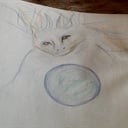Which game is pictured?
Human chess, living chess or live chess is a form of chess in which people take the place of pieces. Human chess is typically played outdoors, either on a large chessboard or on the ground, and is often played at Renaissance fairs.
Many human chess games are choreographed stage shows performed by actors trained in stage combat. When this is the case, piece captures are represented by choreographed fights that determine whether the piece is actually taken or not.
A costumed human chess game has been staged every two years on the second week in September in the Italian city of Marostica, near Venice, since 1923. The game commemorates a legendary chess game played in 1454 by two young knights in order to settle which of them would court the lady that both had fallen in love with. The event lasts 3 days. The participants of the game dress in historic clothes. The human chess game has strict rules which have been set by a specific committee. The performance lasts 30 minutes.
Human chess is a theme in Lewis Carroll's "Through the Looking-Glass" (1871).
More Info:
en.wikipedia.org






